Bengaluru, Aug 19: Police today resorted to 'mild' lathicharge to disperse ABVP activists staging a protest in front of the Amnesty International India office here demanding arrest of those who allegedly raised anti-India slogans at an Amnesty event.
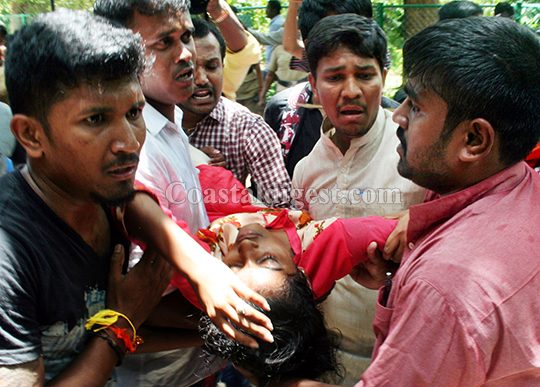
Several ABVP activists were injured, with a girl student fainting in the commotion before she was rushed to a hospital, police said, adding they detained many activists during the crackdown on the protest.
Additional Commissioner of Police Bengaluru East P Harishekaran said police had to disperse protesters as they tried to burn an effigy in a residential area.
"With two bottles of petrol they tried to burn an effigy in front of Amnesty International here. We had in prior warned them against any effigy burning as it is a residential area and from the security point of view," he said.
The protesters alleged that the police under the DCP's leadership behaved in an "inhuman" way and more than 10 ABVP activists were injured in the lathicharge.
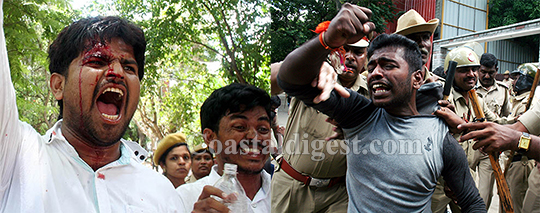
Calling their protest "peaceful", ABVP National General Secretary Vinay Bidre said, "We demanded that police vacate Amnesty staff who were recording our protest from their office. We told police we won't cause any harm to them. We did not try to barge into their premises and tried to burn Amnesty's effigy, but police unnecessarily used force on us."
He accused the Congress-led Karnataka government and police of protecting those involved in anti-national sloganeering.
Stating that ABVP would continue its protest, Bidre claimed, "We will intensify our protest across the state after today's atrocity, we will show this government student power."
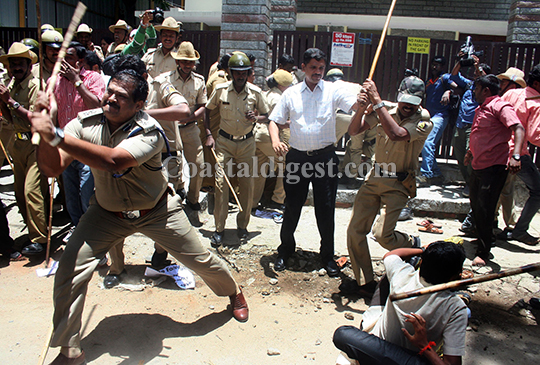
As a precautionary step, police have asked Amnesty International India to keep its office in Bengaluru closed until the ABVP protest subsides, following which the organisation had asked its employees to work from other locations.
Amnesty International had on Saturday organised the event as part of a campaign to seek justice for "victims of human rights violations" in Jammu and Kashmir, which took an ugly turn with heated exchanges and alleged raising of pro-Kashmir 'Independence' and anti-Army slogans.
ABVP activists had submitted a CD containing video recording of the event after filing a complaint with police, who have registered an FIR against Amnesty International.
IPC sections 142 (Being member of an unlawful assembly), 143 (whoever is a member of an unlawful assembly), 147 (rioting), 124A (sedition), 153A (promoting enmity between different groups on grounds of religion, race, place of birth, residence, language and doing acts prejudicial to maintenance of harmony) have been invoked against the organisation.
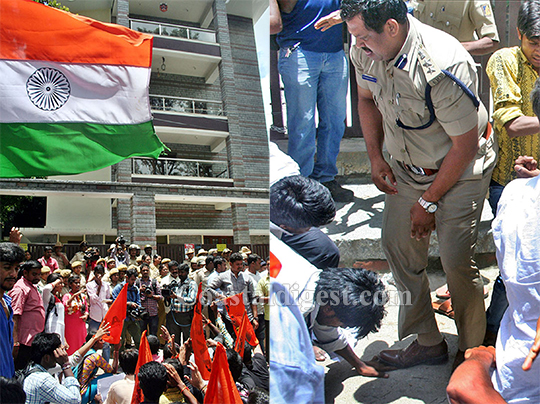
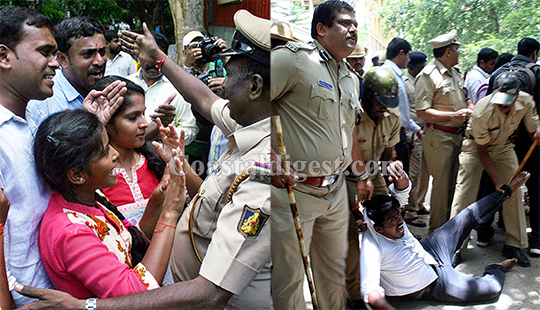
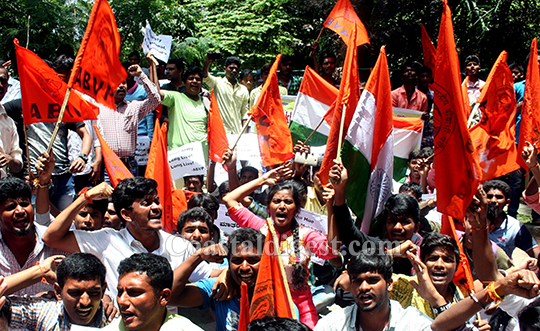
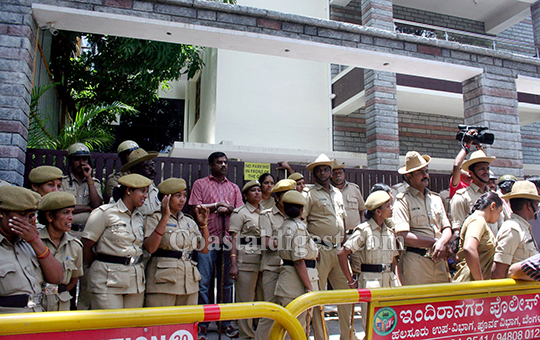
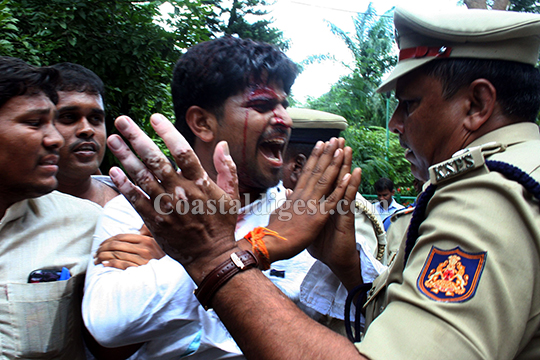
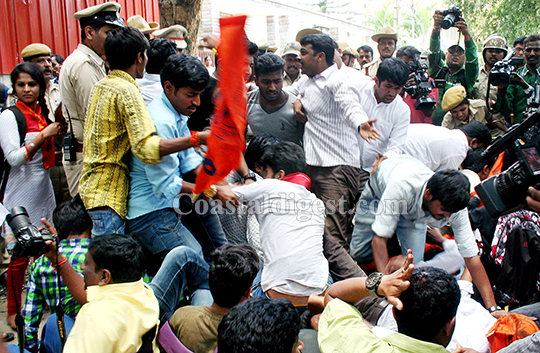
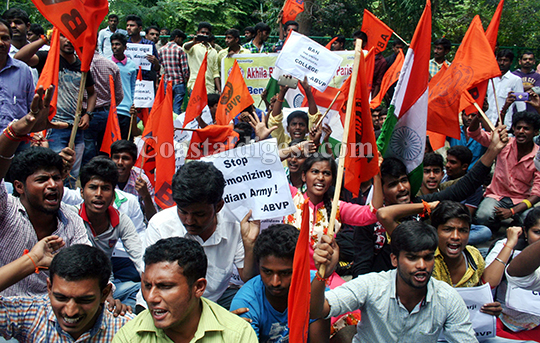
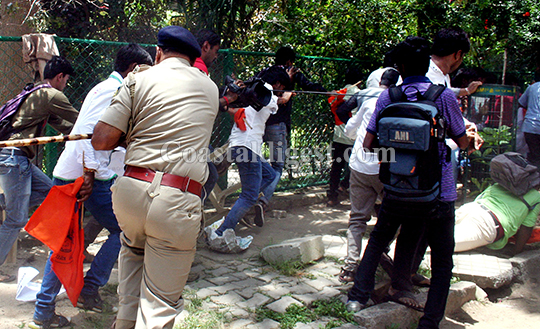





Comments
Police are doing a good job up there! Great!
in the past Students were innocence.
When politics involves students, the status of innocence is removed..
First know the meaning of Anti national...
I think U should first visit NAGPUR and hoist indian Flag there and protest if not hoisted. for your info the cheddis sometimes hoist pakistani flag ... we request .. just tell them to hoist indian not pakistani flag.
You desh premi so called pillas ... don't just oppose the nation for anyone's comments..and just be the pillas of your BJP and Honduras father's.....first yourself do something for this nation and set an example....
You guys are just frustration for this nation...enough
Add new comment